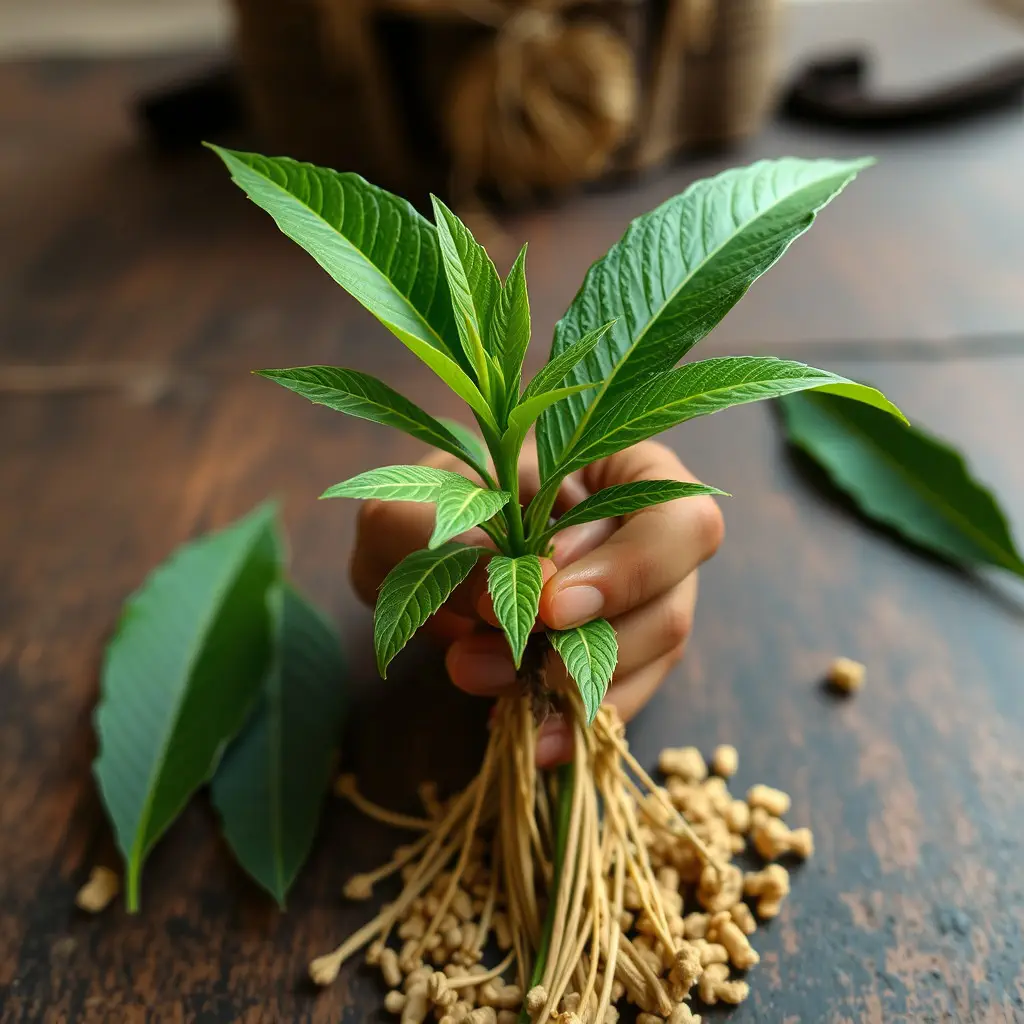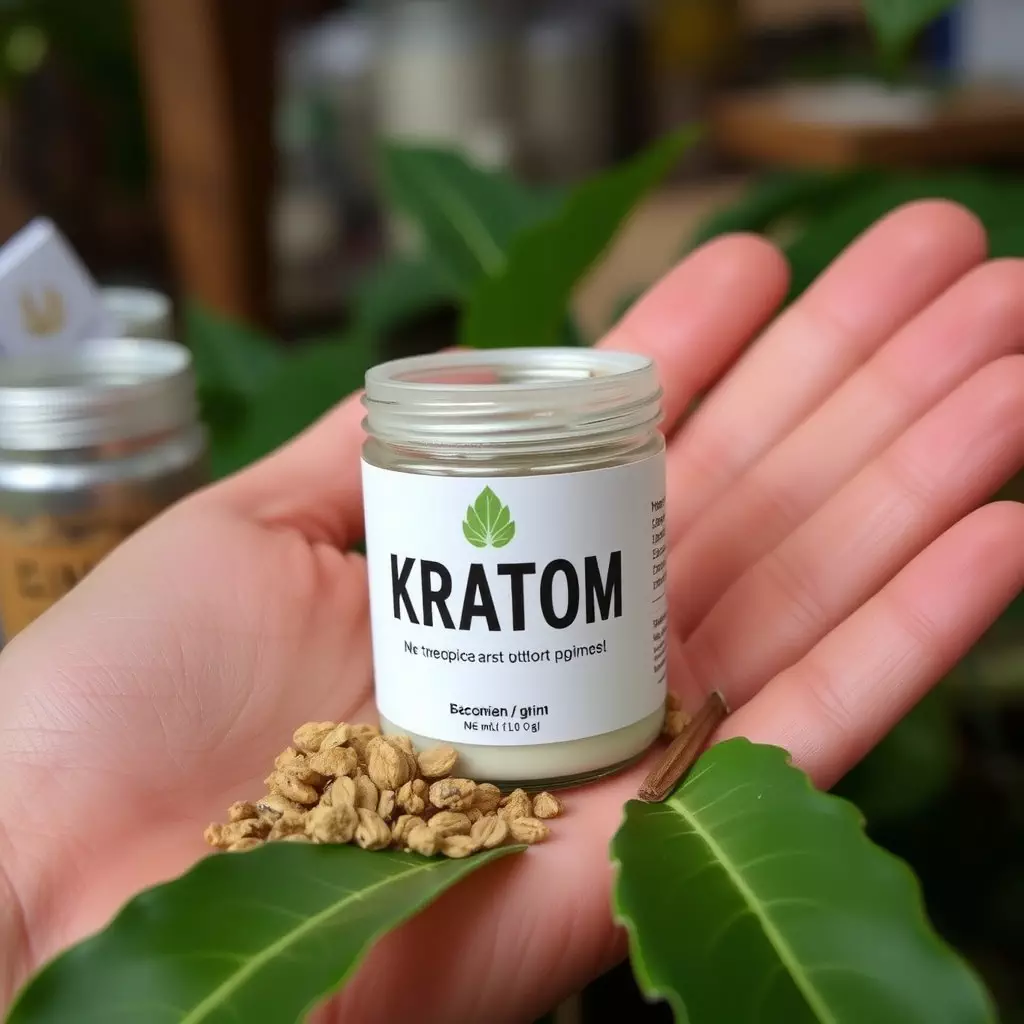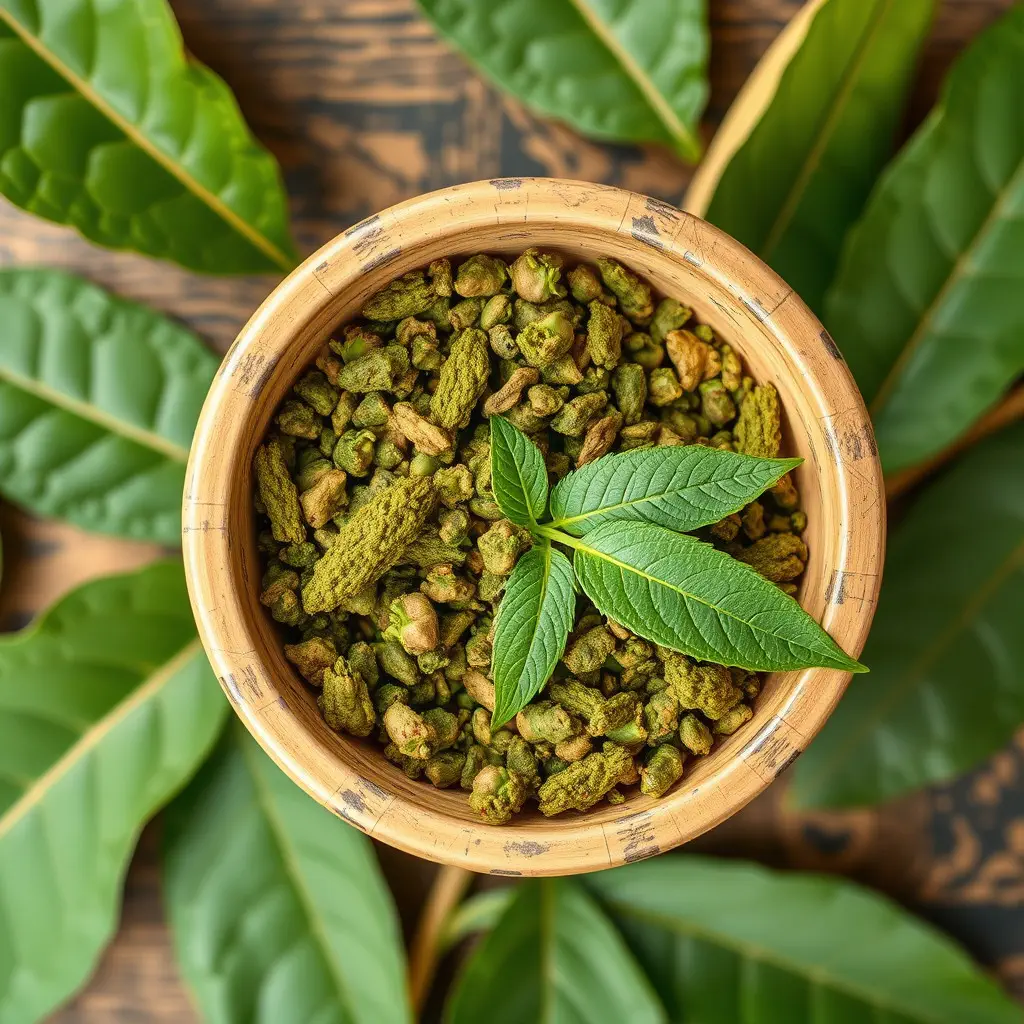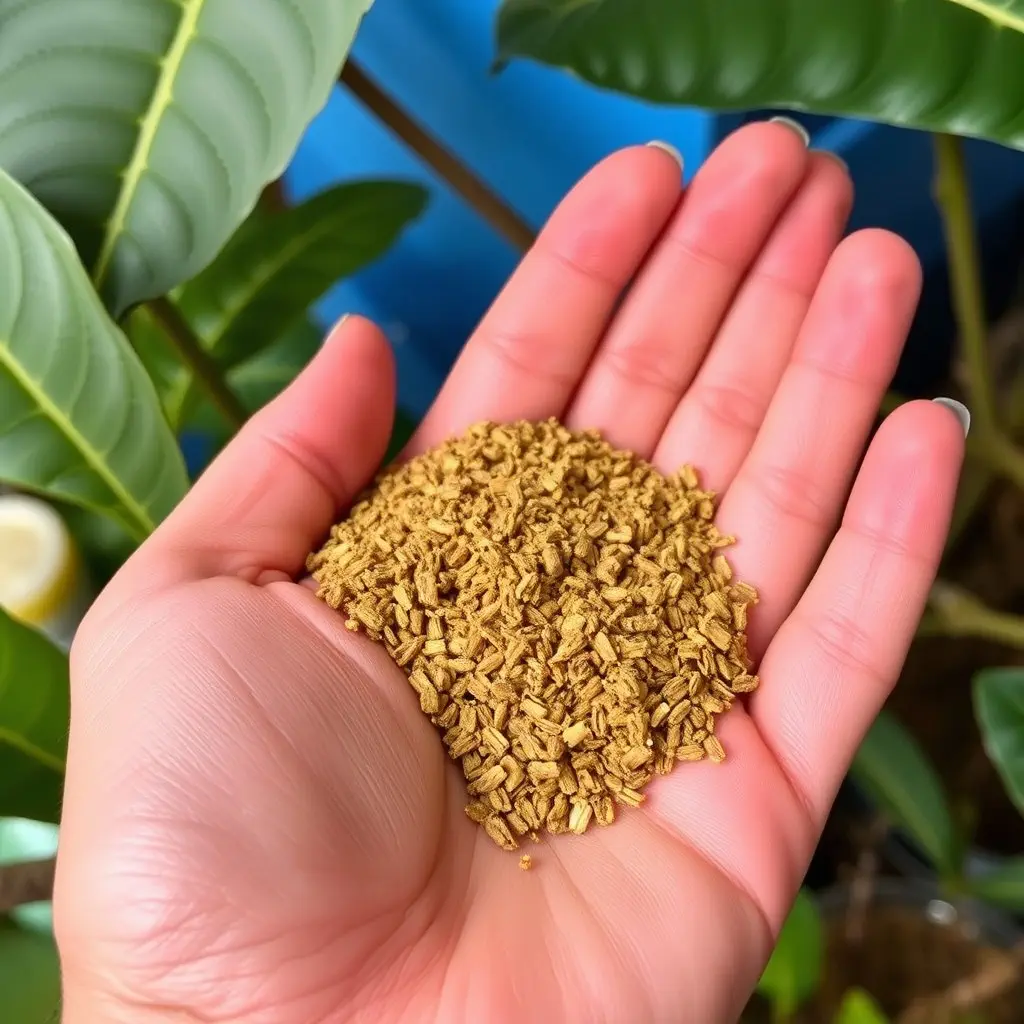Egyptian Flower Tea, a preparation from the Mitragyna speciosa plant, is being studied for its potential therapeutic benefits in managing Chronic Fatigue Syndrome (CFS). This tea contains active alkaloids like 7-hydroxymitragynine and mitragynine, which may offer energy boosts and mood improvement without sedative side effects. CFS patients have reported positive effects from the tea, suggesting it as a complementary treatment to conventional therapies. Its non-psychoactive nature and ability to be taken alongside other medications make it an attractive alternative therapy for CFS management. Ongoing research is examining its biological actions and long-term efficacy, highlighting its promise in holistic CFS care. For CFS patients, Egyptian Flower Tea offers a precise dosing option that could provide sustained energy and pain relief without caffeine's jitteriness. The alkaloids in the tea have been researched for their analgesic and anti-inflammatory properties. It is crucial for individuals to consult healthcare professionals before using kratom or its derivatives, as personalized medical advice is essential for safe and effective treatment of CFS. A comprehensive approach that includes natural remedies like Egyptian Flower Tea, alongside traditional treatments and lifestyle adjustments, can play a significant role in improving the quality of life for CFS patients under professional guidance.
Chronic fatigue syndrome (CFS) presents a complex challenge for individuals seeking relief. This article explores the promising potential of Egyptian flower tea, a natural remedy gaining attention for its therapeutic effects, and kratom, known for its stimulating and analgesic properties, in managing CFS. Through a comprehensive examination of their individual and combined effects, we delve into how these substances can be integrated into a holistic approach for optimal CFS management. Join us as we uncover the natural pathways to alleviating the debilitating symptoms associated with this condition.
- Unraveling the Potential of Egyptian Flower Tea in Managing Chronic Fatigue Syndrome
- Navigating the Therapeutic Properties of Kratom for CFS Relief
- A Holistic Approach to Chronic Fatigue Syndrome: Integrating Egyptian Flower Tea and Kratom for Optimal Management
Unraveling the Potential of Egyptian Flower Tea in Managing Chronic Fatigue Syndrome

Studies have begun to explore the therapeutic potential of Egyptian Flower Tea, often derived from Mitragyna speciosa, commonly known as kratom, in the management of chronic fatigue syndrome (CFS). This natural beverage is gaining attention for its stimulating and energizing properties, which may offer relief to individuals suffering from CFS. The active alkaloids present in the tea, such as 7-hydroxymitragynine and mitragynine, are believed to interact with the brain’s opioid receptors, potentially enhancing mood and energy levels without the sedative effects typically associated with opiate use.
Patients with CFS often report feelings of persistent fatigue that are not alleviated by rest and can impact daily functioning. Egyptian Flower Tea, with its balanced profile of stimulants and minimal side effects, has shown promise in preliminary studies as a complementary approach to managing these symptoms. Its non-psychoactive nature and the absence of significant interactions with other medications make it an attractive option for those seeking alternative remedies. As research continues to unravel its mechanisms and long-term effects, Egyptian Flower Tea stands out as a beacon of hope for individuals in their quest to manage chronic fatigue syndrome symptoms effectively.
Navigating the Therapeutic Properties of Kratom for CFS Relief

Kratom, scientifically known as Mitragyna speciosa, has been explored for its potential therapeutic properties in managing chronic conditions such as Chronic Fatigue Syndrome (CFS). The plant’s leaves, traditionally utilized by individuals in Southeast Asia for energy and well-being, have garnered attention within the realm of natural remedies. When ingested, kratom interacts with the body’s opioid receptors, offering a balance between stimulant and sedative effects, which may be beneficial for CFS patients experiencing disproportionate levels of fatigue and lethargy. One form of consumption that has drawn interest is through Egyptian flower tea, a preparation method that allows for precise dosing and potentially smoother integration into the body’s systems. This tea can provide sustained energy and alleviate pain, symptoms commonly associated with CFS, without the jittery side effects often linked to caffeinated beverages.
Patients with CFS may find Egyptian flower tea particularly appealing due to its gentle nature and the fine control it offers over intake. The tea’s effects are thought to stem from a combination of mitraphylline and 7-hydroxymitragynine, two alkaloids present in kratom leaves that have been studied for their analgesic and anti-inflammatory properties. By incorporating this herbal tea into their daily routine, CFS patients might experience a notable improvement in their quality of life, with enhanced vitality to tackle daily tasks and a reduction in the overwhelming fatigue that often characterizes the condition. As with any treatment, it’s crucial for individuals to consult with healthcare professionals before integrating kratom or its derivatives like Egyptian flower tea into their wellness regimen.
A Holistic Approach to Chronic Fatigue Syndrome: Integrating Egyptian Flower Tea and Kratom for Optimal Management

Managing chronic fatigue syndrome (CFS) often requires a multifaceted approach that addresses both the physical and mental aspects of the condition. A holistic approach to CFS can be highly effective, incorporating natural remedies that work in synergy with conventional treatments. Egyptian Flower Tea, steeped in traditional medicine for its calming properties, is one such remedy that may aid in CFS management. This tea, made from the blue lotus flower, is known to promote relaxation and improve sleep quality, both of which are critical for individuals suffering from CFS. When combined with kratom, another natural substance known for its stimulating and analgesic effects, a balanced treatment regimen can be achieved. Kratom, derived from the leaves of the Mitragyna speciosa tree, has been used traditionally in Southeast Asia for its potential to alleviate pain and enhance energy levels. When carefully measured and administered, kratom can provide relief from the debilitating fatigue associated with CFS, allowing patients to engage in daily activities more effectively.
Integrating Egyptian Flower Tea and kratom into a CFS management plan should be done under the guidance of a healthcare provider due to the potential for interactions with other medications and the importance of monitoring dosage for optimal effects. It is crucial to maintain open communication with healthcare professionals, as they can offer personalized advice and adjust treatments based on individual responses and changing symptoms. By combining these natural approaches with lifestyle modifications such as regular exercise, a balanced diet, stress management techniques, and adequate sleep hygiene, individuals with CFS may experience an improved quality of life. The key to success lies in the careful consideration of each component’s role within the overall treatment plan, ensuring that both the physical and mental health needs are met in a harmonious and supportive manner.
In conclusion, the therapeutic potential of Egyptian flower tea, alongside kratom, presents a promising avenue for managing chronic fatigue syndrome (CFS). The integrative approach, as outlined in this article, offers hope to those suffering from CFS. It is clear that both substances have distinct properties that may alleviate the symptoms associated with this condition. Future research should aim to delve deeper into the efficacy and optimal dosing of these treatments within clinical settings. Patients, healthcare providers, and researchers alike should consider the benefits and risks associated with kratom use, given its regulatory status in various regions. Nonetheless, the evidence suggests that Egyptian flower tea and kratom could be valuable additions to a holistic management plan for CFS, warranting further investigation and careful consideration within the medical community.






